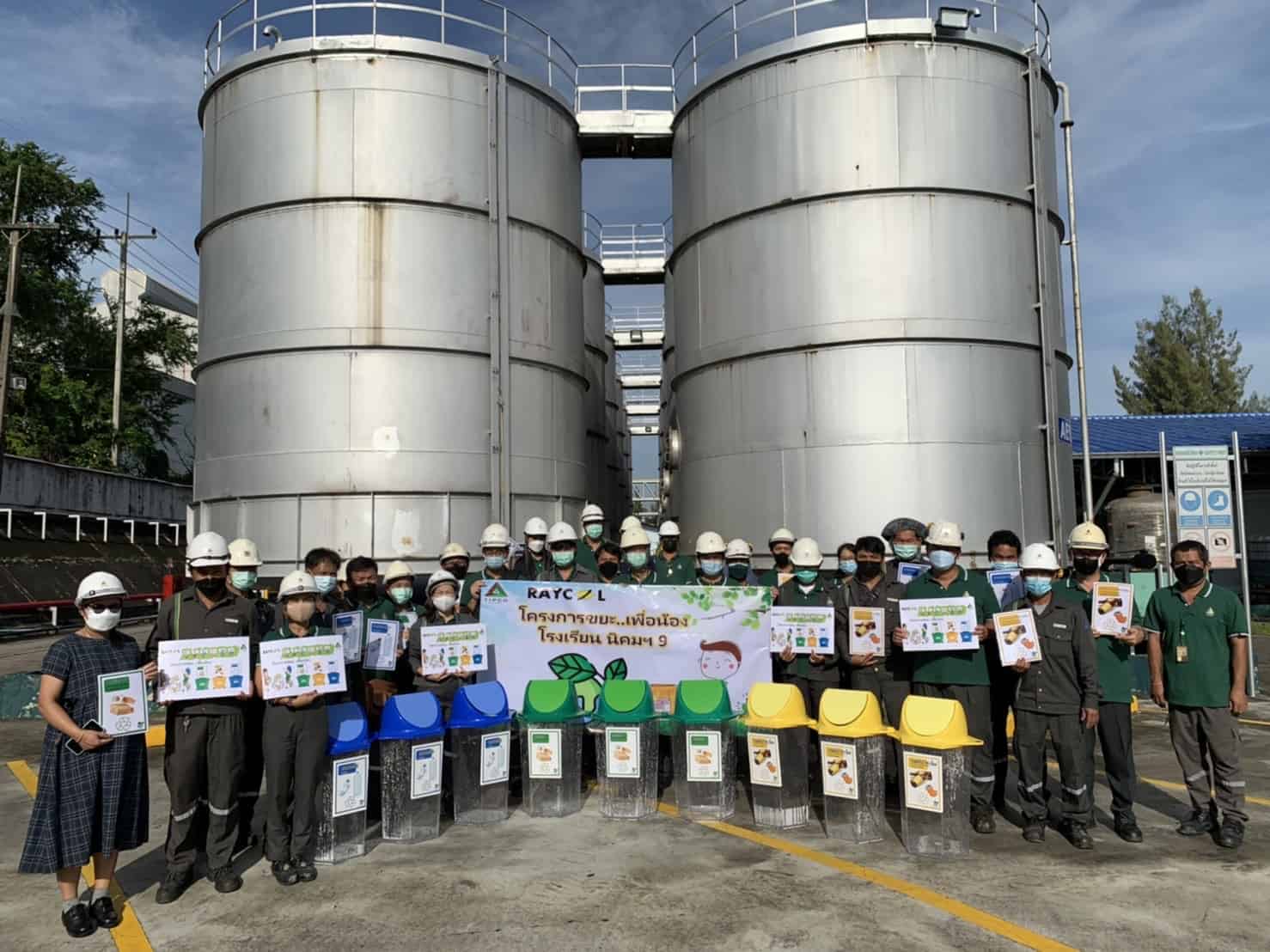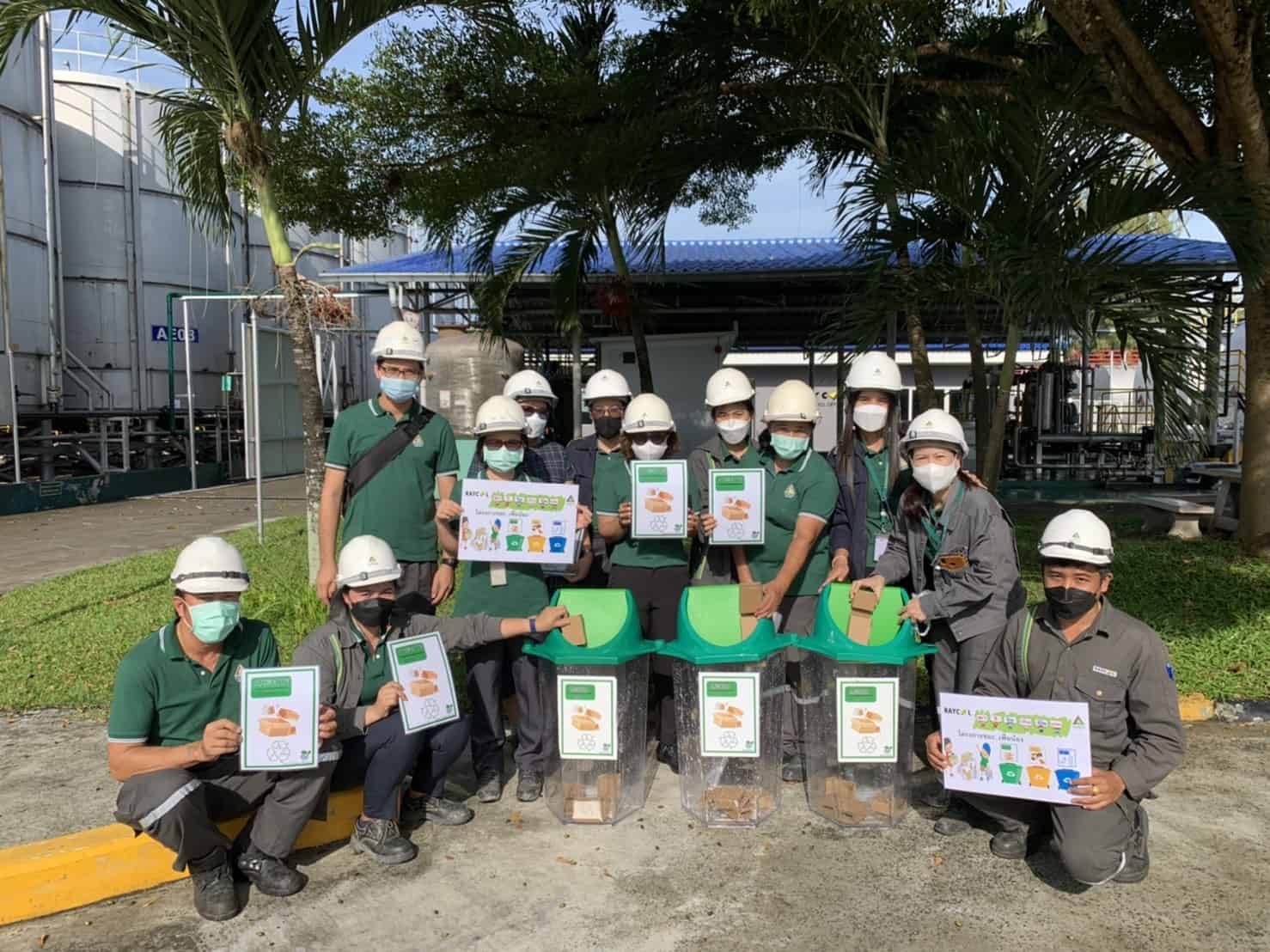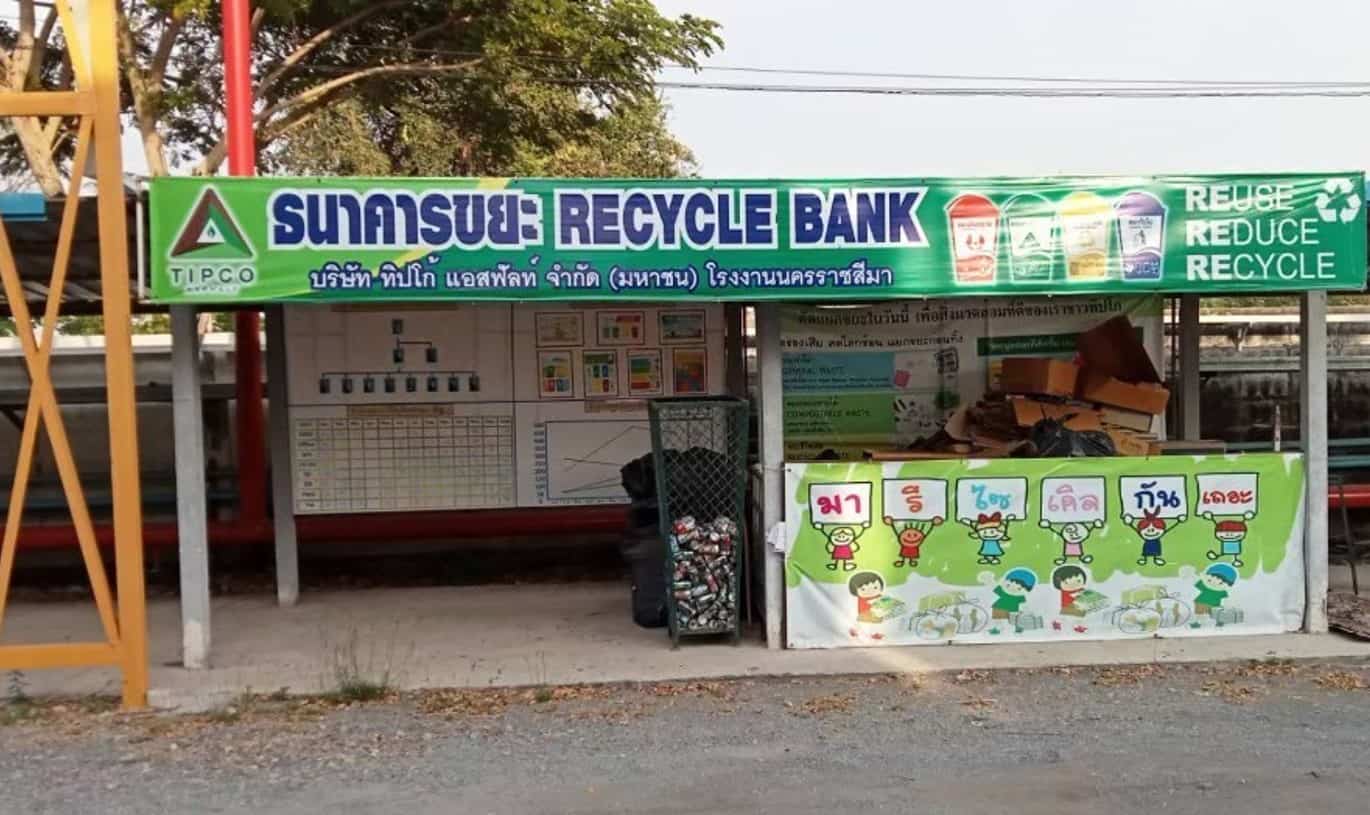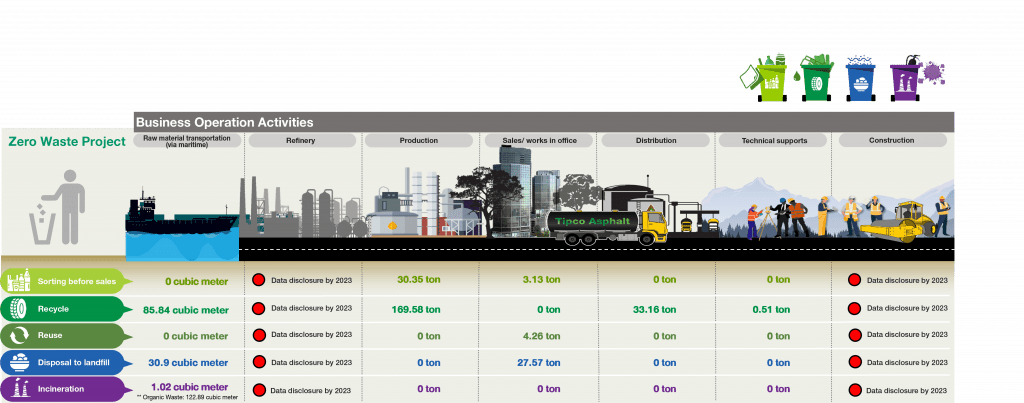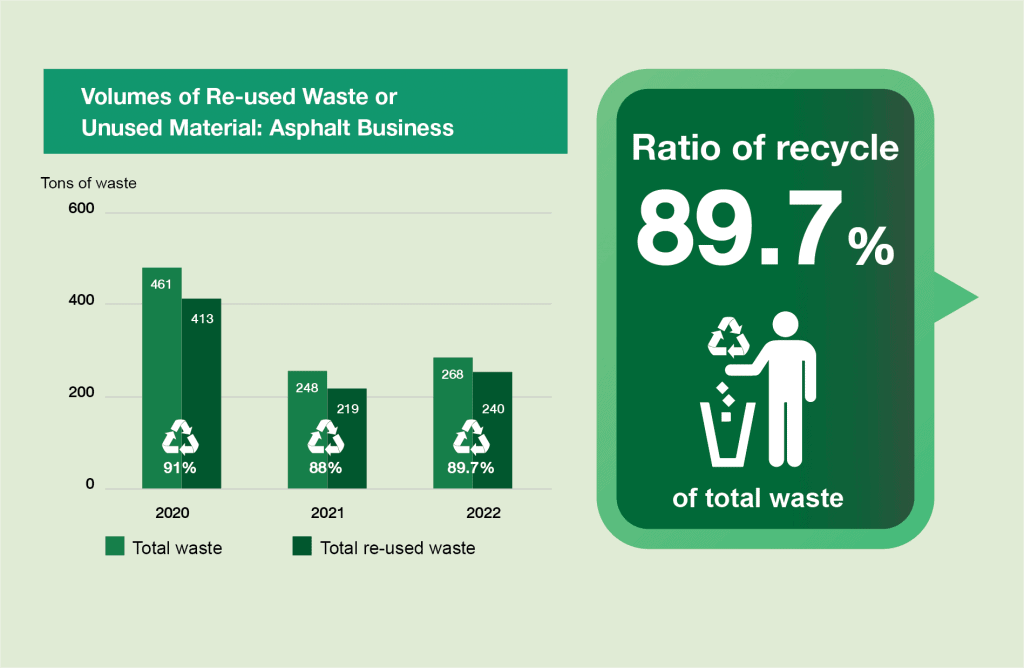
Our approach to wastes is continually improved and developed, with a priority on waste data analysis throughout our value chain. All employees will be informed about our mutual target to reduce waste and unused materials by improving work processes, as detailed in the table above which illustrates the volumes and management methods of waste and unused materials across our value chain.


